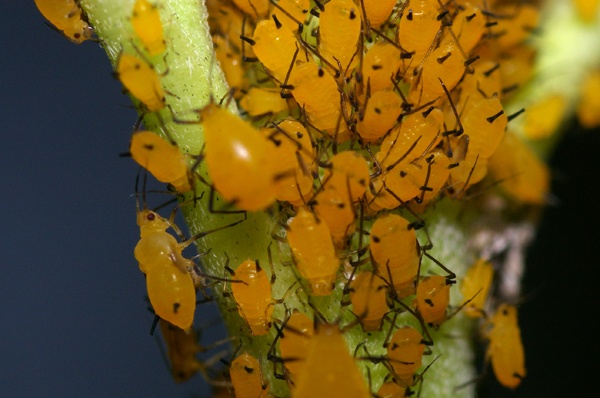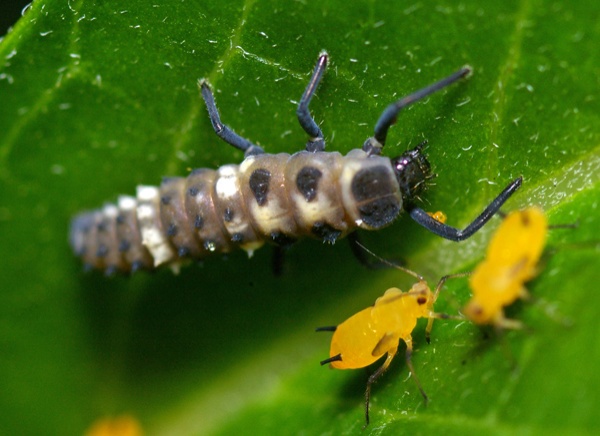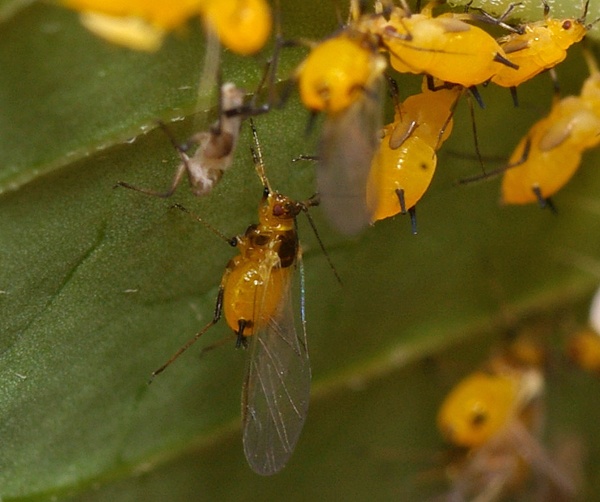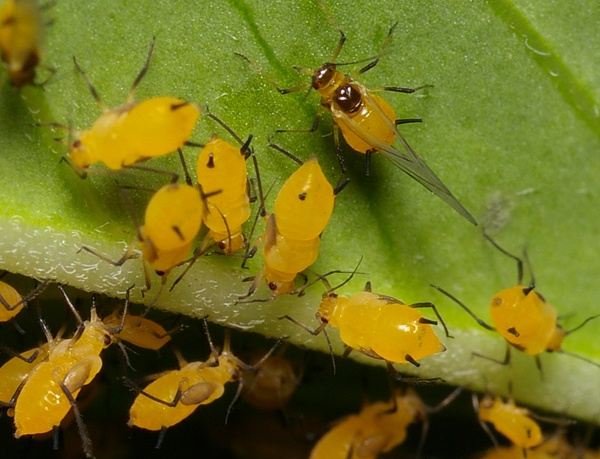|

Milkweed aphids
Photograph copyright: ozwildlife - all rights reserved. Used with permission.
|

Milkweed aphid beside predator ladybird larva
Photograph copyright: ozwildlife - all rights reserved. Used with permission.
|

winged aphids are produced when conditions get overcrowded.
Photograph copyright: ozwildlife - all rights reserved. Used with permission.
|

The winged aphids can fly away to start new colonies.
Some rights reserved.
|
|
|
MILKWEED APHID FACTS |
Identification
Milkweed aphids are a bright orange colour with black legs and two black tubes on the abdomen. Aphids are soft-bodied with sucking mouthparts. When they start to get overcrowded or run out of food, females produce winged young which fly away to find new food sources. The winged aphid has a darker head and dark area on back where wings emerge.
Other Names
Oleander Aphids
Size
3mm
Habitat
Milkweed, Oleander and related plants.
Food
sap from plants
Breeding
Eggs hatch in spring, and all the young are female aphids. These females can reproduce within a few days without any male involvement (a process called parthenogenesis). Populations rapidly increase as this process is repeated generation after generation through the summer. In autumn, winged males are born, and they mate with females. The female lays eggs which lie dormant until spring when the cycle starts again
Classification
| Class: | Insecta | | Order: | Hemiptera | | Family: | Aphididae | | Genus: | Aphis | | Species: | nerii | | Common Name: | Milkweed Aphid |
Relatives in same Genus
Cotton Aphid (A. gossypii)
Aphid (A. unknown species)
|
|

